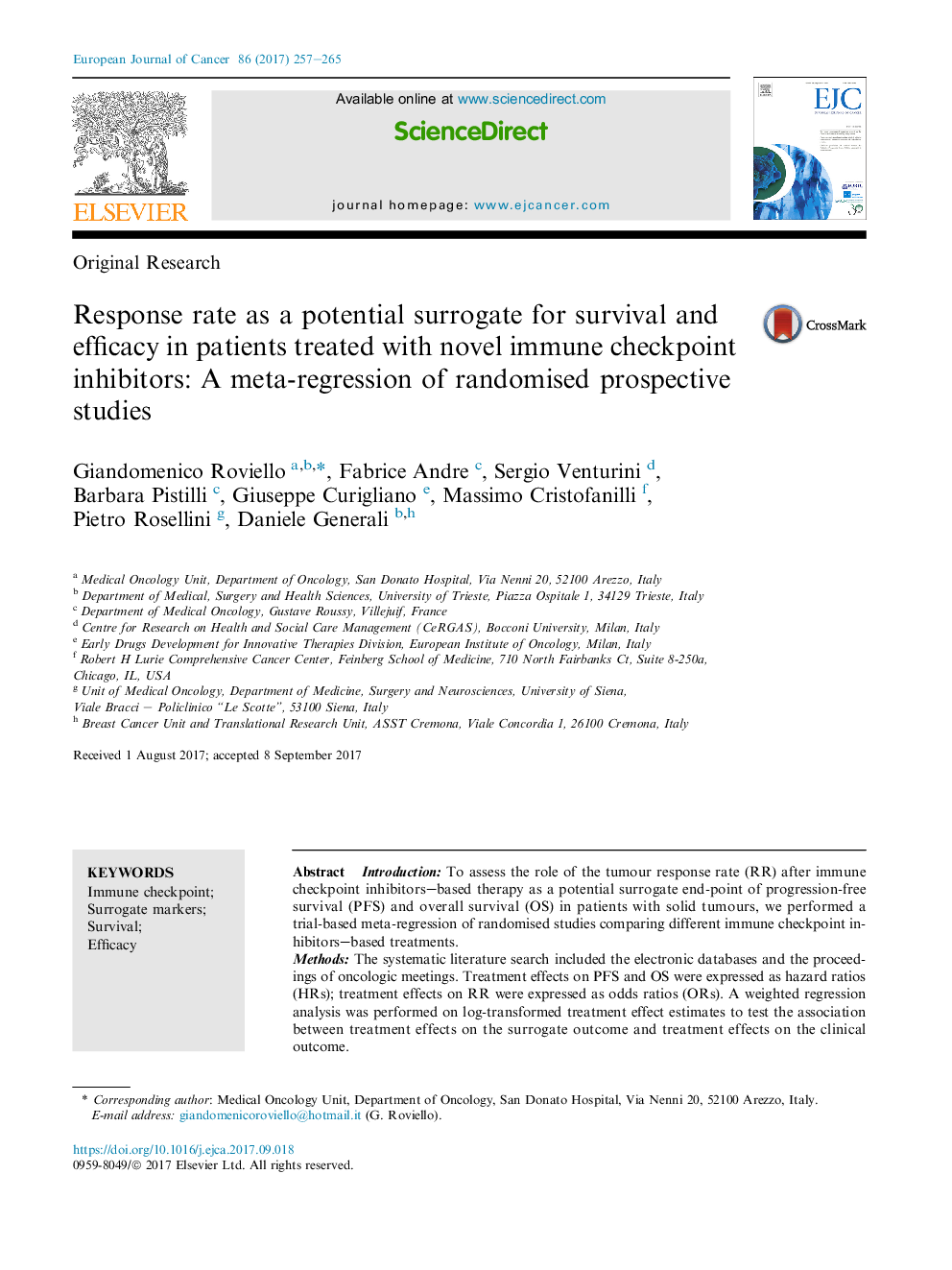| Article ID | Journal | Published Year | Pages | File Type |
|---|---|---|---|---|
| 5526173 | European Journal of Cancer | 2017 | 9 Pages |
â¢The regression of PFS and OS demonstrated good associations.â¢Different type of disease and mechanism of action of immune checkpoints inhibitors showed a very weak association.â¢Strong association of the RR with the PFS for CTL-4 checkpoints inhibitors.
IntroductionTo assess the role of the tumour response rate (RR) after immune checkpoint inhibitors-based therapy as a potential surrogate end-point of progression-free survival (PFS) and overall survival (OS) in patients with solid tumours, we performed a trial-based meta-regression of randomised studies comparing different immune checkpoint inhibitors-based treatments.MethodsThe systematic literature search included the electronic databases and the proceedings of oncologic meetings. Treatment effects on PFS and OS were expressed as hazard ratios (HRs); treatment effects on RR were expressed as odds ratios (ORs). A weighted regression analysis was performed on log-transformed treatment effect estimates to test the association between treatment effects on the surrogate outcome and treatment effects on the clinical outcome.ResultsTwenty-four trials, for a total of 11,894 patients, were included in the analysis. Using the complete set of data, the regression of either the log(HR) for PFS or the log(HR) for OS on the log(OR) for RR demonstrated weak associations (R2Â =Â 0.47; 95% confidence interval [CI], 0.03-0.77; PÂ =Â 0.001; and R2Â =Â 0.32; 95% CI, 0.02-0.76; PÂ =Â 0.01, respectively). The pre-planned analyses stratifying trials according to different type of disease and different mechanism of action of immune checkpoint inhibitors showed a very weak association of the RR with the OS for non-small cell lung cancer indicated and a modest association of the RR with the PFS for cytotoxic T lymphocyte-associated antigen 4 checkpoint inhibitors.ConclusionThe results of the trial-based meta-regression analysis indicated a weak correlation between RR and OS, supporting future investigations to assess the surrogacy of RR in the patient treated with immune checkpoint inhibitors.
